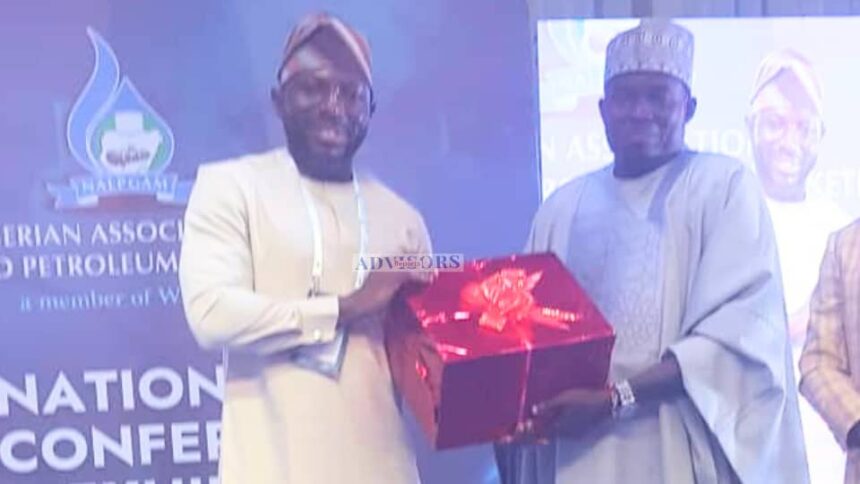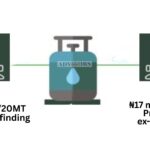… urge govt. to compel IOCs on propane-butane separation, domestication of LPG cargoes
Oredola Adeola
Energy stakeholders have accused International Oil Companies (IOCs) of worsening Nigeria’s LPG (cooking gas) supply crisis by continuing to export cargoes instead of domesticating them, despite a government directive banning exports from November 1, 2024.
They observed that the directive requiring producers to establish blending and storage facilities within 12 months has been largely flouted, as by September 2025, there is little evidence of compliance, leaving the domestic market under severe pressure.
They made the call during a panel session on “Regulatory Framework for LPG, Challenges & Opportunities,” at the Nigerian Association of Liquefied Petroleum Gas Marketers (NALPGAM) 2025 National LPG Conference & Exhibition in Lagos.
Advisors Reports’ checks revealed that Rt. Hon. Ekperikpe Ekpo, Minister of State for Petroleum Resources (Gas), had on 22 February 2024 announced a ban on the export of domestically produced LPG, with effect from 1 November 2024.
He directed NNPC and LPG producers to either halt exports or import equivalent volumes at cost-reflective prices, while also mandating the establishment of blending, storage, and delivery facilities within 12 months.
He then insisted that the suspension, he said, would remain until domestic sufficiency and price stability were achieved.
Advisors Reports gathered that as of 2025, full compliance by International Oil Companies (IOCs) remains elusive.
Mr. Oladapo Olatunbosun, the National President of NALPGAM, in a remark made during the panel session, expressed concern over the continued export of cooking gas from Nigeria despite the Minister of Petroleum Resources (Gas) pronouncing a ban on the practice, particularly by International Oil Companies (IOCs).
Olatunbosun said IOCs have consistently argued that they lack the facilities to separate propane from butane, a requirement for making the product more suitable for domestic use.
According to him, these companies had previously requested a timeframe to put such facilities in place, yet there has been no enforcement or monitoring by government agencies to ensure compliance.
“Companies prefer to export these products abroad to make more money,” he said, stressing that the practice undermines Nigeria’s domestic LPG market, which still struggles with insufficient supply.
Olatunbosun therefore urged the Nigerian Midstream and Downstream Petroleum Regulatory Authority (NMDPRA) and the Minister of State for Gas to compel the IOCs to establish the required infrastructure for propane-butane separation.
He insisted that the Minister’s directive must be enforced to stop the outflow of LPG from Nigeria.
“The domestic market does not have sufficient volumes of gas, so there is no justification for exporting the product out of the country by the IOCs,” the NALPGAM President added.
Mr. Teryima Toryila, Executive Director, Gas, Power & Renewable Energy at AYM Shafa Holding Ltd, has identified the failure of International Oil Companies (IOCs) to domesticate their Liquefied Petroleum Gas (LPG) cargoes as a major factor behind Nigeria’s supply challenges.
Speaking during a panel session, Teryima said many cargoes, particularly those exported by Chevron through Escravos, are shipped out of the country because of their gas specification, which is about 45 percent butane and 55 percent propane.
He described this as the excuse often advanced by the companies to justify continued exports.
“I recall that NNPC, at a time, following the order of the Minister of Petroleum Resources (Gas), began a programme to domesticate those LPG cargoes and blend them for local usage. But somewhere along the line, that programme stalled,” ED, Gas, Power & Renewable Energy at AYM Shafa Holding Ltd stated.
Teryima stressed that the government, through the Minister of Gas, should re-engage NALPGAM to monitor compliance and ensure IOCs domesticate their LPG cargoes.
According to him, this will help boost local supply, move Nigeria closer to self-sufficiency, and address the persistent supply gap.
He further noted that despite improvements, LPG penetration remains low in Nigeria. “LPG penetration is largely around 25 percent.
Consumption has increased from below 2kg per capita to about 6.5kg per capita, but this is still too low for a country with Nigeria’s population size,” he said.
Teryima explained that raising per capita consumption to 10kg would translate into about 2.6 million metric tonnes of LPG annually.
He therefore called for greater public awareness, sustained sensitization, and investment in rural infrastructure.
“Most plants are concentrated in densely populated cities. Until investors bring LPG closer to rural communities, adoption will remain slow. Government must also play a bigger role in making LPG more accessible,” Teryima added.
He urged NALPGAM to continue pressing for strict monitoring of government policies on LPG to ensure proper implementation and deeper market penetration.




